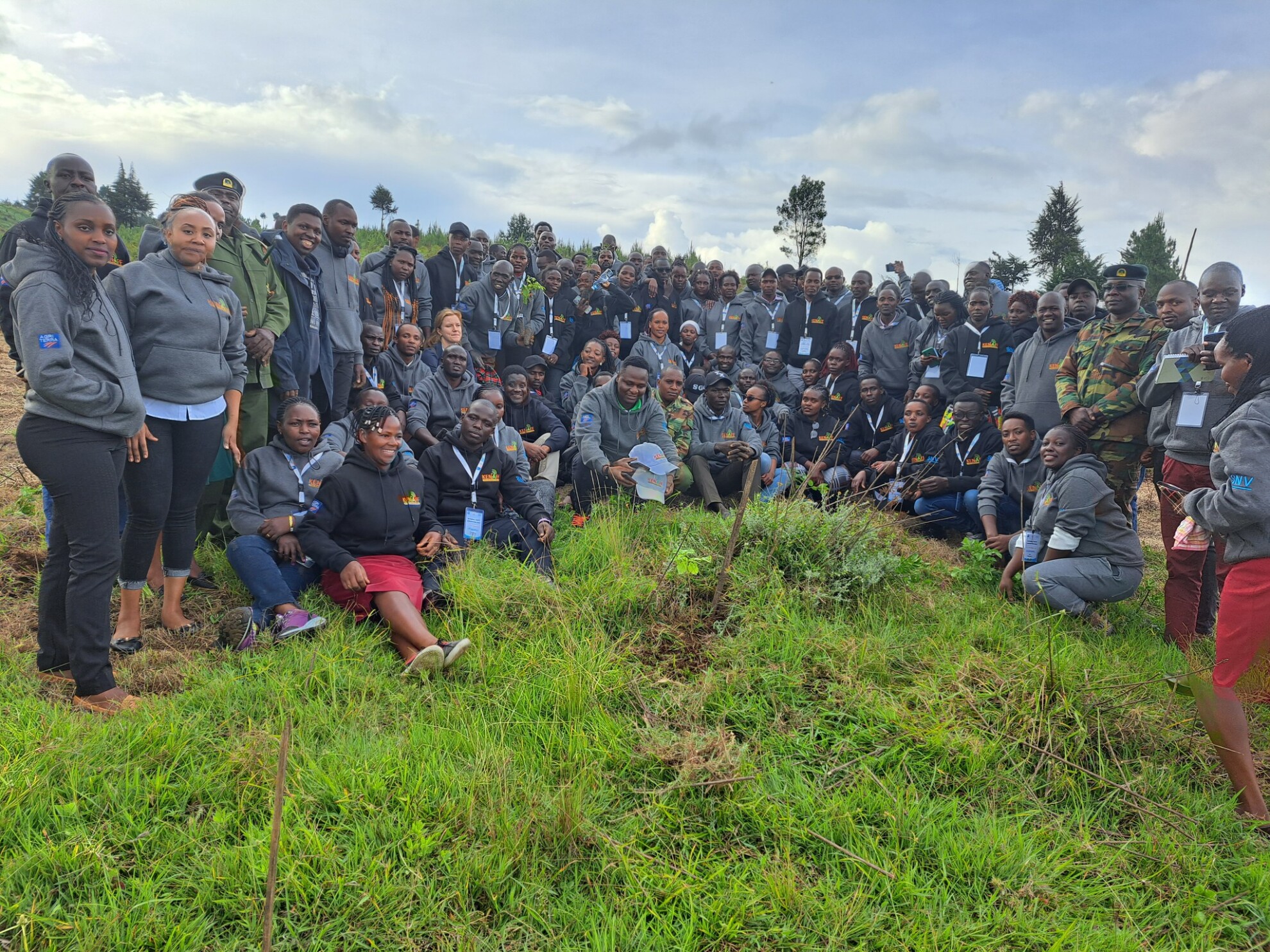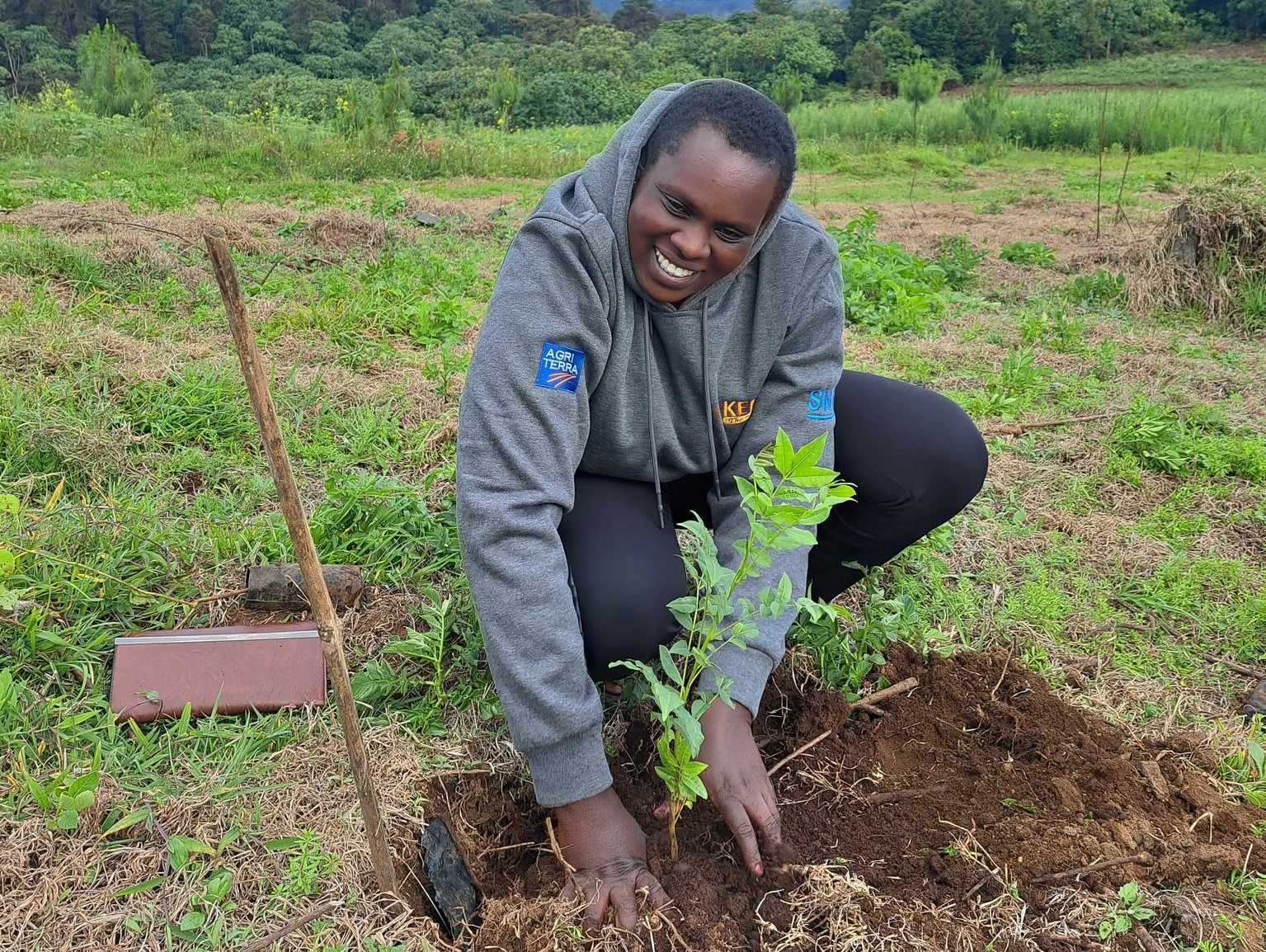Listen to the youth
09-01-2023Written by Mary Muthoni, cooperative advisor Agriterra Kenya
In December 2022, Agriterra in partnership with Kenya National Farmers Federation (KENAFF) and SNV (CRAFT project), organised a national youth convention that saw 168 youth farmers and agripreneurs attend and actively participate for three days.
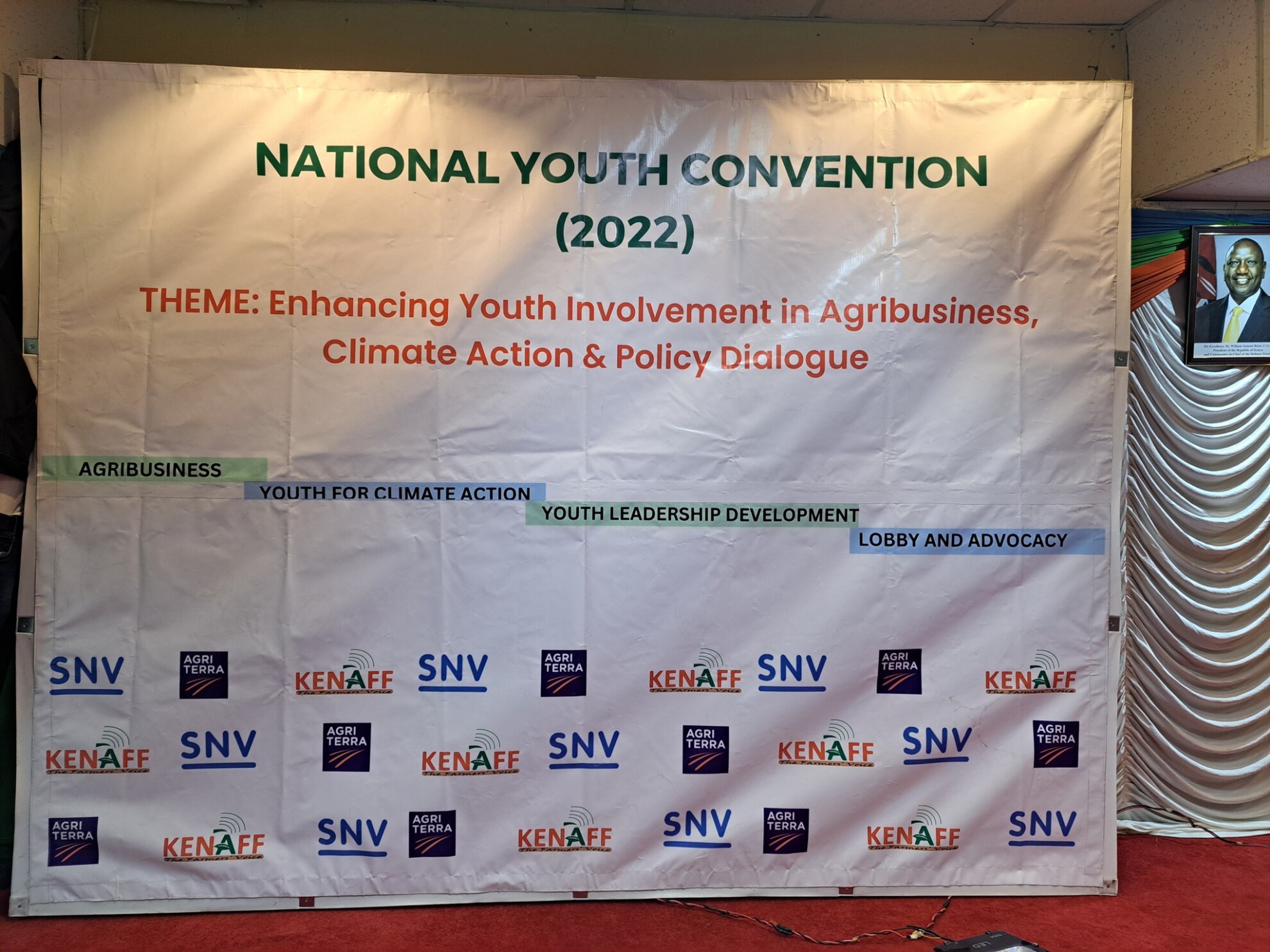
The convention also brought together different actors (banks, development partners, private sector, research, government, and policymakers) as well as resource persons to help re-configuring the contours of an effective farmer organisation- a farmer-led effort at strengthening the participation of the youth in:
- Agricultural enterprise and development (agribusiness)
- Governance, policymaking processes, and the growth of cooperatives & Farmer Organisations
- Climate-action for a sustainable agri-food system in Kenya.
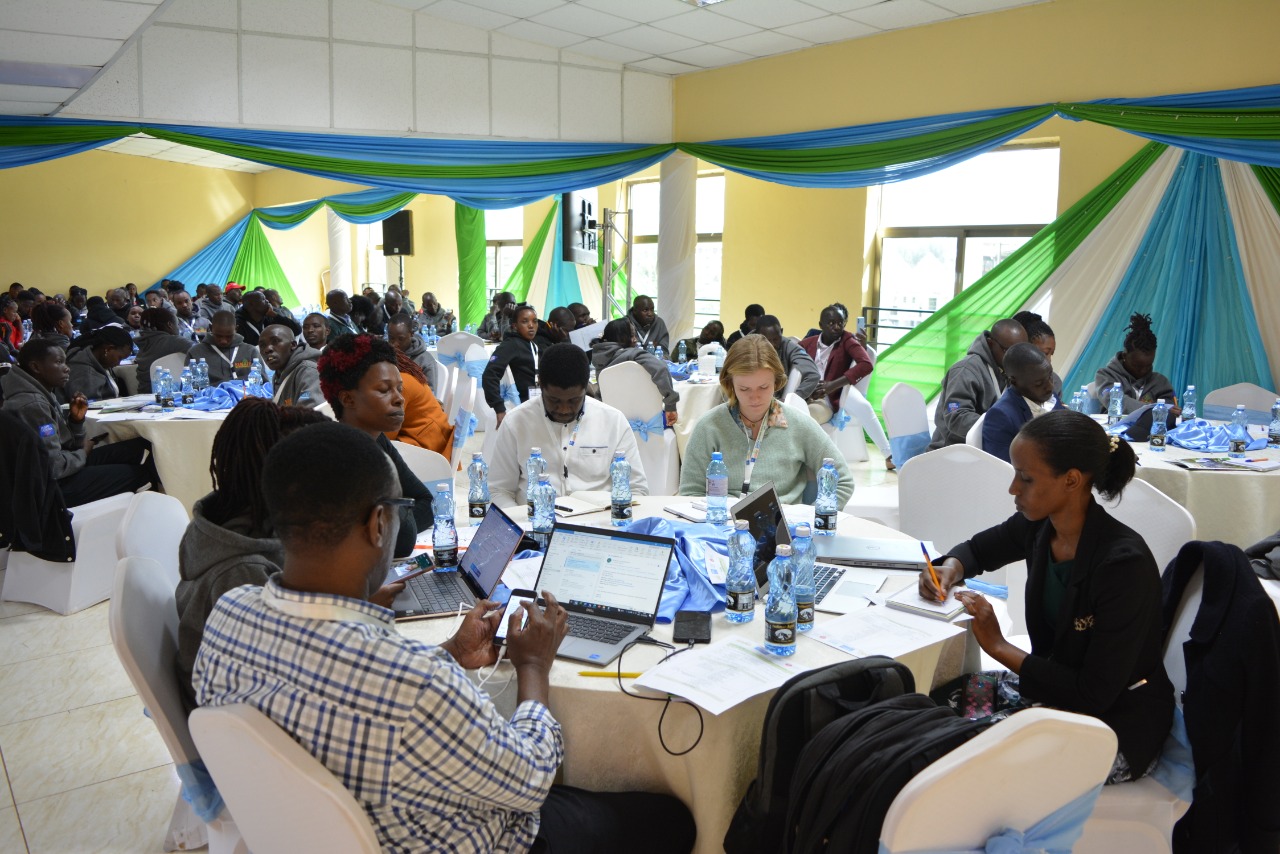
It is undeniable that the world is facing a global unemployment crisis. In the last decade, young people have had limited decent career opportunities, leading to the perpetuation of poverty or “low-pay” traps, social instability, isolation, and migration. Indeed, the unemployment rate among young people is three times higher than among adults (FAO 2021). While there seems to be no agreeable percentage to inform policy and public debate, it is self-evident that youth unemployment in Kenya is at a crisis level. Incidentally, young people in rural areas, and particularly young women, are more vulnerable to economic straitjackets that consign them to lives of squalor, despondence, and unexplored potential.
Luckily, the agricultural sector value chain offers substantive latitude for tackling this unemployment crisis among the youth. Indeed, tapping this potential by applying the youth to it is a fail-safe strategy for gearing up a lower middle-income economy such as Kenya’s. The youth can also play a key role in transforming the sector even as the country charts out a pathway towards a national food systems transformation. This is particularly important for Kenya, because the country must, undoubtedly, change the way it produces food. The effective participation of young people could be just what the country needs. Given the high vulnerability of the agri-food system to climate change, the nexus between a sustainable agri-food system and progressive policymaking as well as science, technology, and innovation, bringing the energy, enthusiasm innovativeness, and knowledge of young people into the matrix cannot be gainsaid.
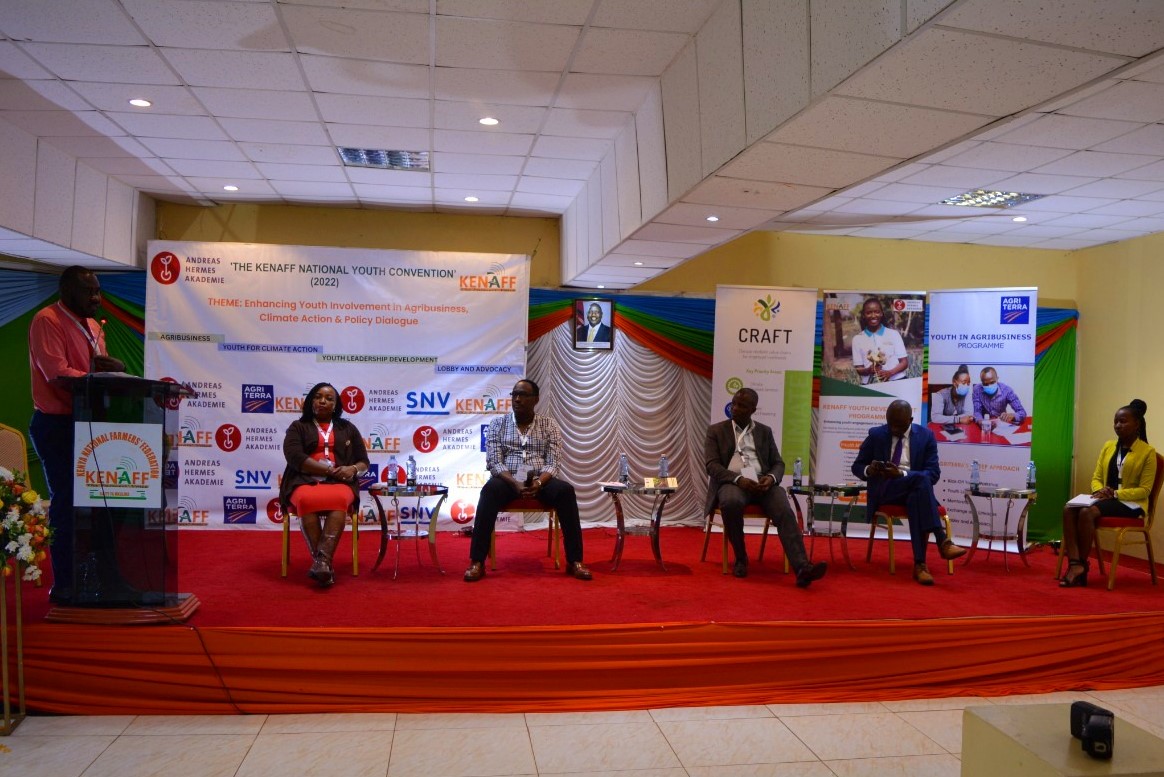
Obviously, the nature of the challenge that SVN, Agriterra, and KENAFF have to contend with is complex and multi-faceted. Indeed, there’s no silver bullet to settling the vexatious questions of how we:
- Get young people to participate effectively and sustainably in the agricultural sector value chain
- Ensure sound and optimal participation of young people in governance and policymaking processes.
- Promote the sector as young people’s desired source of employment and wealth creation.
- Increase young farmers’ involvement in cooperatives and farmer organisations
- Leverage youthful energy, enthusiasm, innovation, and knowledge to turn them into climate action champions.
To make this transition into and for the youth possible, we’ve to listen to young people. This is the first step. To truly bring young people on board, agricultural enterprise and development policymaking must be designed with and not for the youth. Young people must be involved in solid and meaningful ways not through “mere talk” and/or tokenism. The youth structure that KENAFF offers is a great window of opportunity for an organising platform for multiple actors keen on promoting the youth agenda in the agricultural sector in Kenya as well the youth council concept of Agriterra.
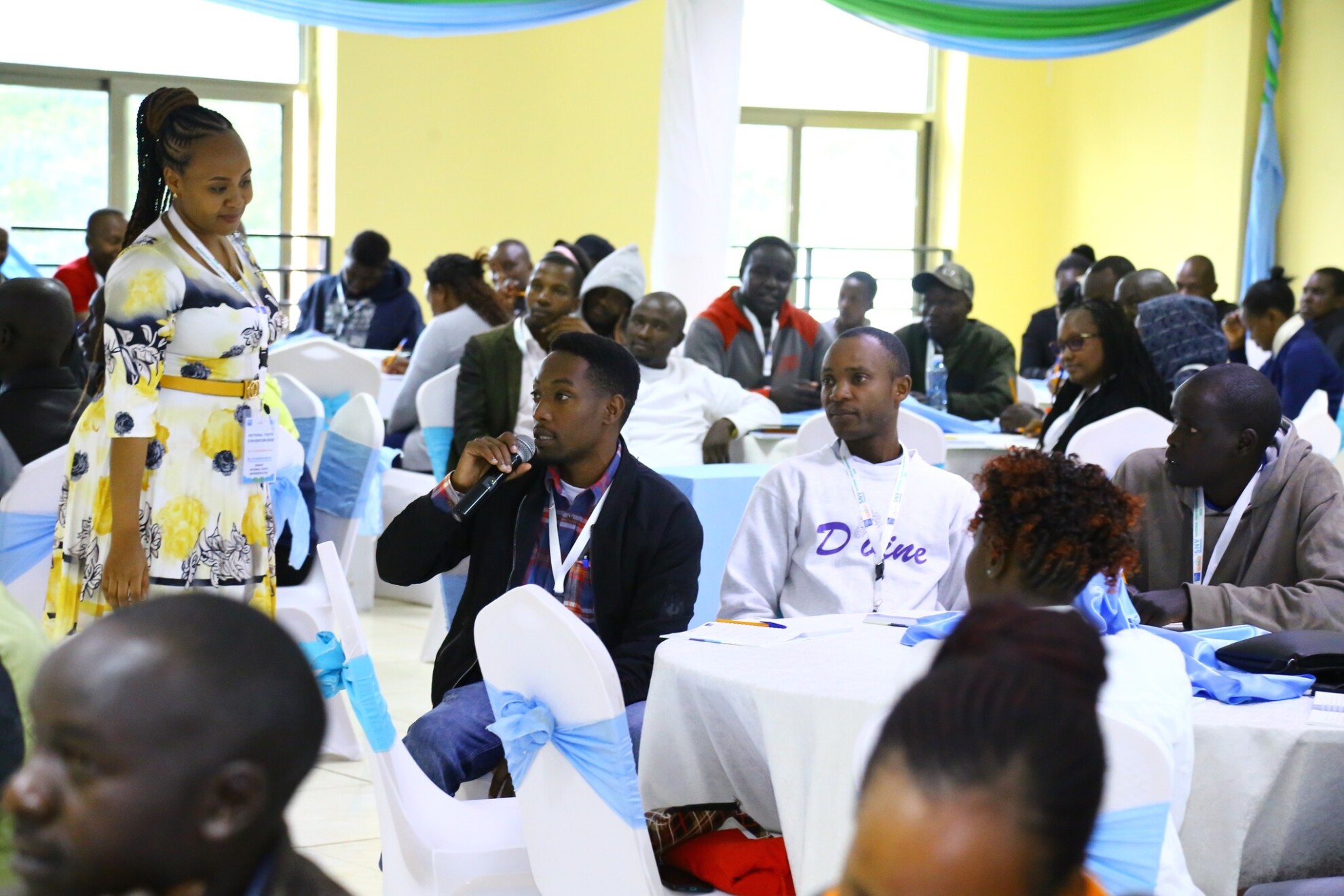
The convention ended with practical steps agreed upon, especially on youth council formation and a tree planting excursion conducted at Kereita forest in Limuru.
